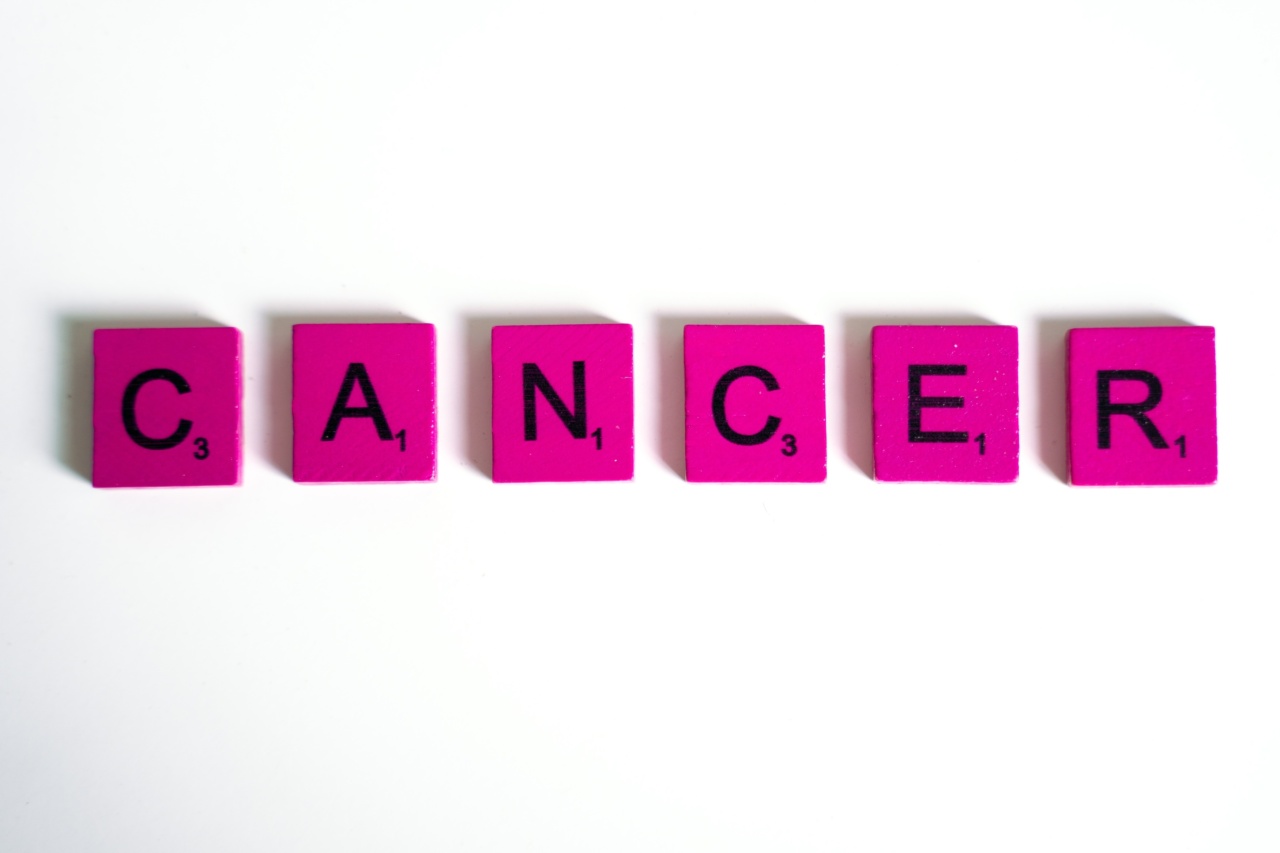Liver cancer is a condition that arises when there is an abnormal growth of cells in the liver. This type of cancer can be quite serious and potentially life-threatening if not detected and treated early.
Like most types of cancer, being able to detect liver cancer in its early stages is crucial for successful treatment and improved chances of survival. In this article, we will discuss the early signs and symptoms of liver cancer that can help in its early detection.
1. Unexplained Weight Loss
One of the early signs of liver cancer is unexplained weight loss. This refers to a significant drop in weight without any intentional changes in diet or exercise.
The liver plays a vital role in metabolism and digestion, so when cancer affects the liver, it can lead to a decrease in appetite and subsequent weight loss.
2. Abdominal Pain and Swelling
Another early sign of liver cancer is abdominal pain and swelling. As the tumor grows, it can cause discomfort or pain in the upper abdomen. The liver itself may also become enlarged, leading to swelling or a feeling of fullness in the abdominal area.
3. Jaundice
Jaundice is a common symptom of liver cancer, particularly when the cancer has spread beyond the liver. It is characterized by yellowing of the skin and eyes, dark urine, and pale stools.
Jaundice occurs when there is a buildup of bilirubin in the body, which is a waste product produced by the liver.
4. Fatigue and Weakness
Liver cancer can cause fatigue and weakness, even in its early stages. The tumor in the liver can disrupt the normal functioning of the liver, leading to a decrease in energy levels.
Fatigue and weakness can significantly impact a person’s ability to carry out daily activities.
5. Loss of Appetite
A loss of appetite is another early sign of liver cancer. The liver plays a crucial role in the digestion and metabolism of food. When cancer affects the liver, it can interfere with these processes, leading to a decreased desire to eat.
6. Nausea and Vomiting
Nausea and vomiting are common symptoms of liver cancer. The tumor can put pressure on the stomach, leading to feelings of nausea and an increased likelihood of vomiting.
Persistent or recurring nausea and vomiting should be evaluated by a healthcare professional.
7. Changes in the Skin
In some cases, liver cancer can cause noticeable changes in the skin. These changes may include the appearance of small, red spider-like blood vessels on the skin, known as spider angiomas.
The skin may also become itchy or develop a yellowish tint due to jaundice.
8. Easy Bruising and Bleeding
When the liver is affected by cancer, its ability to produce clotting proteins may be impaired, leading to easy bruising and bleeding. You may notice an increased tendency to bruise even with minor injuries and bleeding that takes longer to stop.
9. Enlarged Liver
An enlarged liver, also known as hepatomegaly, can be an early sign of liver cancer. The tumor in the liver can cause it to become larger than normal, which may be felt as a lump or mass on the right side of the abdomen during a physical examination.
10. Back or Shoulder Pain
Liver cancer can sometimes lead to back or shoulder pain. This pain may be dull and persistent, or it can be sharp and intermittent.
It occurs when the tumor presses against nerves or nearby organs, causing discomfort in the upper back or shoulder region.
If you experience any of these early signs or symptoms of liver cancer, it is important to consult a healthcare professional for a proper diagnosis.
Remember that early detection and treatment can significantly improve the outcome and increase the chances of successful recovery.



























